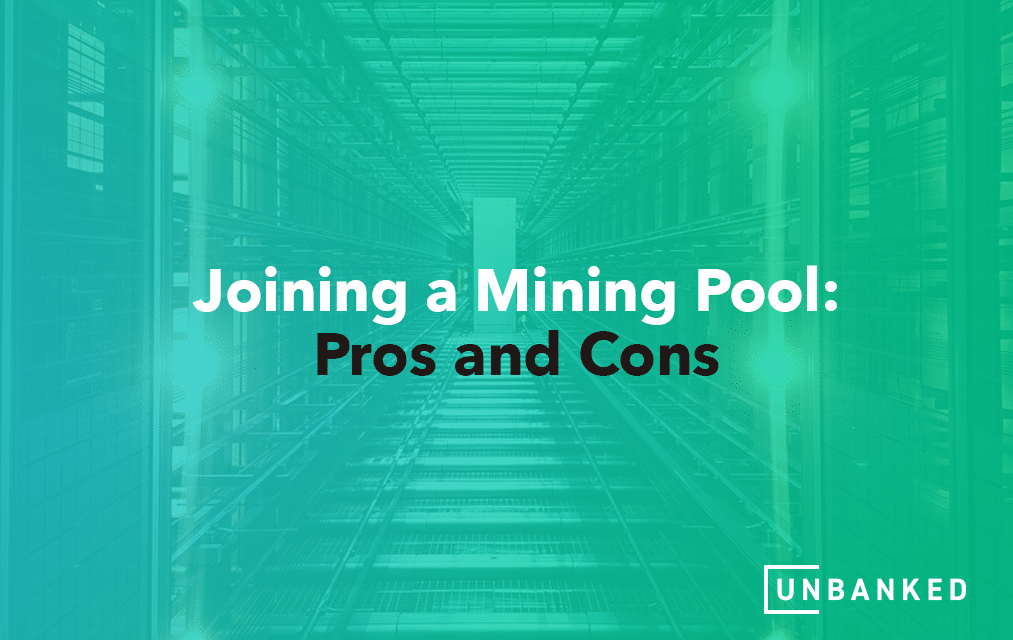Cryptocurrency mining is how digital currency transactions are verified and added to the blockchain ledger. Miners authenticate the validity of each transaction and update the blockchain ledger. Cryptocurrency miners are rewarded for their efforts – for example – bitcoin miners get 6.25 bitcoins if they have successfully added a block to the blockchain. Mining is a complicated process as it involves solving complex mathematical problems. With the increase in popularity of bitcoin, more and more miners are attempting to mine cryptocurrencies. This increases the computing power required for mining, thus making it more difficult to mine cryptocurrencies. With such competition, expensive mining rigs, and electricity costs, mining cryptocurrency alone may not be as profitable as it once was.
Due to this, mining pools have become quite popular. Several miners combine their effort and resources over a network and mine cryptocurrency with much more computational power in a mining pool. The chances of getting the reward increase through a mining pool have to be shared between all miners. There are several advantages and drawbacks associated with joining a mining pool. Choosing to opt-in or opt-out of a mining pool depends on your preferences and long-term goals. In this article, we will discuss some advantages and disadvantages of joining a mining pool to help you make the right decision.
Benefits of Joining a Mining Pool
- Stable Income: Mining pools are great for new miners looking to mine without investing too much in expensive equipment. There is a higher chance of more blocks getting accepted and recognized, creating consistent income. There are several types of mining pools, and your income will depend on the kind of mining pool you join. In proportional mining pools, miners who are contributing to the pool’s computing power receive shares until the point at which the pool succeeds in finding a new block. After that, they receive rewards based on the proportion of shares they hold in that pool. On the other hand, pay-per-share pools miners are awarded based on their shares in the pool. But unlike proportional mining pools, miners in this kind of pool can get shares in exchange for proportional payout at any point of time regardless of the fact that a new block is found or not. Lastly, peer-to-peer is a decentralized mining pool structure that creates a peer-to-peer miner node network. Your income will depend on which kind of mining pool you join and how much effort you put into it.
- Cheaper: Miners have to take into account several things associated with mining. This includes equipment costs, electricity costs, how much time it will take to recover equipment cost, how cryptocurrencies’ volatility will affect their profits and how often they need to replace old equipment. All of these are pretty expensive ventures. Cryptocurrency mining has become quite complicated and requires heavy investment. In mining pools, these costs are shared by all stakeholders.
- Faster Processing: One of the benefits of a mining pool is faster processing. In bitcoin mining, nodes compete with the rest of the network to add blocks to the blockchain. These blocks can only be added if other nodes concur with their discovery. Being in a mining pool means that there are multiple blocks in the same network which speeds up the discovery process because it reduces delays and latency. This process also eliminates discrepancies in the internet connections between nodes placed in different regions across the globe. A mining pool directly connects these nodes, which speeds up the discovery process.
Disadvantages of Joining a Mining Pool
- Lower Rewards: A large mining pool means that the reward has to be shared amongst all miners depending on the proportion of work they did and the kind of mining pool they joined. Sometimes, large miners take over the mining pool, with other miners feeling marginalized. These large miners take up the dominant roles – leaving almost nothing for others. This process also reduces their rewards. These other miners cannot earn as much as they would like to in such large pools.
- High Contribution Fees: Sometimes, joining a bitcoin mining pool requires high fees. Administrators charge more for providing miners with some premium services and advantages. These are pretty lucrative offers, and miners might end up paying a lot just to join the mining pool. This is why it is recommended to choose your mining pool wisely.
- Frauds: Some people make up fake mining pools to extract money from interested miners. Until later, miners might not realize that all their profits will be snatched away by some frauds. Therefore, you must check the authenticity of a mining pool before you join one. Check their historical records through search engines to ensure it is a genuine mining pool. Some administrators can also tamper with your scores and points to cheat you and extract your rewards. They may take advantage of certain loopholes in the system to interfere with your points and rewards, so you should only join a mining pool that you can trust completely.
- Hiding Generated Blocks: Some miners of mining pools may hide their generated blocks from the main blockchain. This creates a lot of confusion for other miners in the mine and in the meantime the mining pool has to generate additional blocks quickly. They reveal the hidden blocks only after half of that blockchain is mined.
The Bottom Line
There are both advantages and disadvantages to joining a mining pool. Mining pools are cheaper, can provide stable income and faster processing, but at the same time, joining the wrong mining pool can lead to lower rewards, frauds, and hidden blocks. You must be careful when joining a mining pool. Depending on your future goals, it is up to you to decide whether joining a mining pool is profitable for you or not. To know more about how bitcoin mining works, read our blog.





